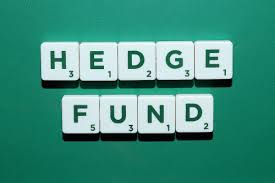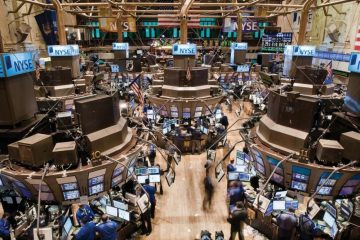Warren Buffett Scorches the Hedge Funds

The hottest news in Berkshire Hathaway’s 2016 annual report—posted just minutes ago—is that CEO Warren Buffett devotes almost five pages of his avidly-awaited shareholder letter to a scathing denunciation of hedge funds for charging high fees while delivering sub-par, if not miserable, results to their investors. There’s a bottom line, he says: “When trillions of dollars are managed by Wall Streeters charging high fees, it will usually be the managers who reap outsized profits, not the clients.”
He meanwhile stingingly documents his case by disclosing the standings, after nine years, of a 10-year performance bet between his own investment pick—a low-cost S&P 500 index fund administered by Vanguard—and the pick of Protégé Partners, an asset manager who elected to bank on the average performance of five funds of hedge funds that it chose for the competition. The stakes, you might say, were large: $ 500,000 for each party, the total of which explains why this wager is sometimes called “The Million-Dollar Bet.”
And the envelope, please? After nine years, the index fund has registered a compounded annual increase of 7.1%. And the average for the five funds (whose names have never been made public) is 2.2%. In total gains, the index fund is up 85.4%. The average gain of the five funds is 22%. (The best performer of the five is up 62.8%. The worst performer—over nine years, remember—has been mind-bendingly bad: up only 2.9%.)
To dig into this subject a little, let’s say that you already knew—from Fortune’s annual articles disclosing the bet’s results, in fact—that Buffett was so far ahead he couldn’t lose. Most hedge funds have had time to despise that near-certainty for several years. But they probably didn’t anticipate that Buffett was going to emerge, in this early part of 2017, with punishing words that go on and on.
More from Fortune on Buffett’s 2017 annual investment letter:
Warren Buffett Refutes Donald Trump’s Immigration Stance in Annual Letter
Warren Buffett Just Pointed Out What Everyone Gets Wrong About the Way He Invests
You could, of course, reasonably ask why hedge fund investors put up with the acid combination of high fees and low returns. Buffett gets into that matter, too, featuring a long-ago quote from a relative of his who seemed to be having a standout, if somewhat mysterious, success selling hogs at the Omaha stockyard. Said the relative, in explanation, “Warren, it isn’t how you sell ‘em, it’s how you tell ‘em.”
In the remaining, more traditional part, of the shareholder letter, Buffett copes with “tell ‘em” challenges of his own. They revolve around book value per share, the progress of which Buffett long ago established as a target and hates to change (having seen dishonest types too often remodel targets to obscure how badly they were performing). This year, consequently, he opened his letter in the usual way, reporting on book value per share. It rose in 2016, he writes, by 10.7%. That qualifies as middling, far below Berkshire’s average of 19% for the last 52 years.
But Buffett then quickly explains in the letter (as he also did last year, in what is clearly an ongoing educational process) that what happens to book value doesn’t really matter much today anyway. The underlying reason is that Berkshire has over the years moved from being primarily an investor in stocks to a huge conglomerate (ranking 4th on the Fortune 500) that owns scores of operating businesses. Behind the scenes, with no stock market keeping track, these subsidiaries rise and fall in value every day, every month, every year. But accounting rules say that the book value of the prospering companies—that is, their carrying value on the balance sheet—never gets written up, no matter how much their real, or intrinsic, value rises. Meanwhile, losers get written down. “Over time,” Buffett writes in the letter, that asymmetrical accounting system “necessarily widens the gap between Berkshire’s intrinsic value and its book value.”
Fortunately, the stock market doesn’t care a whit about book values. Its talents supposedly lie in figuring out real, or intrinsic, values no matter what balance sheets say. And so it was that Berkshire stock made a 23.4% leap last year, which was close to double the S&P 500’s gain of 12%. Keep that win in perspective, though: Berkshire is a financial company at heart—its principal business is insurance—and its 2016 performance is more logically compared with that of the S&P Financials Index, which rose by 20%.
For further perspective, here’s a nod to the yardstick of earnings, even though Buffett regards that measurement as useless. (For one reason, earnings, unlike book value, don’t include unrealized gains and losses, which are integral to the well-being of insurance companies). For the record, though, Berkshire’s earnings fell minutely in 2016 from $ 24.08 billion to $ 24.07 billion.
Convert that 2016 total to a per-share figure for Berkshire A stock, and you get $ 14,645. Against that, yesterday’s closing price for the A shares was about $ 255,000. The stock is therefore selling somewhat above 17 times trailing earnings.
It is also selling at 147% of Berkshire’s book value at yearend. That calculation is relevant because Buffett has said for years that he would happily repurchase Berkshire stock at 120% of book. Obviously, 147% is not in the neighborhood, so no repurchases have been taking place. Laments Buffett in his letter: “To date, repurchasing our shares has proved hard to do.”
Berkshire’s annual report shows, as usual, that profits and losses swing among its scores of businesses and investments and that the company is helped by its diversity. Selected items:
Just for a crazy investment starter, Berkshire has been told by its accountants, Deloitte & Touche, that it can no longer describe as “cash equivalents” its holdings of U.S. Treasury bills that had a maturity of more than three months when they were purchased. Huh? Is that rule a creation of the Trump presidency? Actually, no. It turns out that Berskshire had smallish amounts of these securities at the end of 2015 ($ 4.6 billion) and a year later—Buffett having admired their probable return—had magnitudes ($ 58 billion). For material holdings like that, Deloitte said, Berkshire must describe the securities by their true name, which is U.S. Treasury bills. Never mind that the mere existence of this requirement suggests that these bills aren’t truly “cash equivalents.” If they are not, the whole world—the one we visualize as a globe—is in deep, deep trouble.
In 2016, Berkshire’s holdings of Kraft Heinz securities delivered it $ 923 million in pre-tax equity earnings against a pre-tax loss of $ 122 million in 2015. The follow-on news this year, of course, was the offer by Kraft Heinz to acquire Unilever for $ 143 billion, a deal in which it was widely assumed that Berkshire would partner. But Unilever quickly and firmly rejected a deal, and the offer disappeared. One reason, no doubt, is that Unilever’s refusal closed the door to a friendly takeover—and Buffett never engages in hostile deals.
The company’s railroad, BNSF, had what Buffett calls a “disappointing” year, with revenues declining from $ 22 billion in 2015 to $ 20 billion, and after-tax profits falling from $ 4.2 billion to $ 3.6 billion. Coal and crude oil carloads were down especially. In contrast, the railroad’s corporate cousin, Berkshire Hathaway Energy—which Buffett slots with BNSF as a “regulated, capital-intensive” business—maintained its growth, sliding up in after-tax earnings from $ 2.4 billion in 2015 to $ 2.5 billion.
Berkshire’s sprawling manufacturing, service, and retail businesses jumped in revenues from $ 108 billion in 2015 to $ 120 billion in 2016, mainly because of the parent’s acquisition in 2016 of two sizable companies, Precision Castparts (formerly publicly-owned) and Duracell (formerly a Procter & Gamble subsidiary). After-tax profits of the overall group rose in 2016 by $ 950 million, increasing from less than $ 4.7 billion to more than $ 5.6 billion, again principally because of those two additions. Berkshire also reported that its costs for Duracell’s “transition, business integration, and restructuring” were $ 109 million, an expenditure suggesting that Berkshire may be running a tighter ship than was P&G.
The company’s huge and diversified insurance business ended 2016 with $ 92 billion in “float”—the money that Berkshire and Buffett hold, and can invest, until it must be paid out in claims. Float rose $ 4 billion during the year, thereby once again contradicting Buffett, who has been warning for several years that it could begin to go down. In another piece of good news, Berkshire Hathaway Reinsurance Group bounced back to $ 822 million in pre-tax profit, after a 2015 slump to about half that. Geico’s profits slumped that year as well and did not recover in 2016. But auto insurers have in general been hurt by soaring loss costs—much of the trouble caused by drivers who text—and some insurers, Buffett reports in his letter, have been pulling back from the business. But not Geico, which has accelerated its push for new policyholders. In Buffett’s opinion, that strategy is perfect: “We like to make hay while the sun sets, knowing that it will surely rise again.”
That comment is straight out of the Buffett book of optimism. His presidential candidate, Hillary Clinton, did not win, of course. But nothing about that setback diminished his belief that the United States has a golden future.
He turns—as he so often has—to that subject in his letter, saying, “One word sums up our country’s achievements: miraculous. From a standing start 240 years ago—a span of time less than triple my days on earth—Americans have combined human ingenuity, a market system, a tide of talented and ambitious immigrants, and the rule of law to deliver abundance beyond any dreams of our forefathers.”
Then there’s his wind-up: “I’ll repeat what I’ve both said in the past and expect to say in future years: Babies born in America today are the luckiest crop in history.”
Buffett is 86, and trending nicely to 87. He plainly anticipates seeing many of those babies add years. There is no thought in his letter that he might retire, or name a successor, or do anything different from what he has for 52 years absolutely loved: running Berkshire Hathaway.
The writer of this article, Carol Loomis, a retired senior editor-at-large of Fortune, is a long-time friend of Warren Buffett’s, a Berkshire Hathaway shareholder, and pro bono editor of Buffett’s annual letter to shareholders.

